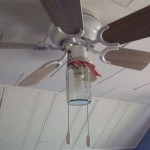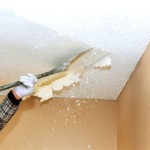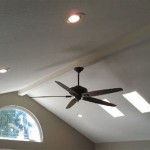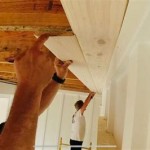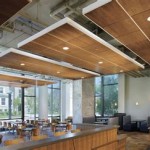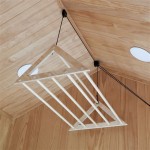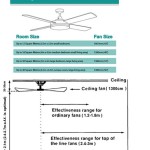What Does a Cathedral Ceiling Mean?
A cathedral ceiling, also known as a vaulted ceiling, is a type of architectural feature characterized by its high, arched shape. It is typically found in grand buildings such as cathedrals, churches, and other religious structures. Cathedral ceilings create a sense of awe and grandeur, enhancing the spiritual and aesthetic experience within the building.
Design and Construction
Cathedral ceilings consist of a series of pointed or arched vaults that intersect to form a ribbed pattern. The vaults are typically supported by columns, arches, or buttresses to create a strong and stable structure. The pointed arches distribute weight effectively, allowing for higher and more elaborate ceilings. The ribs, which form the intersections of the vaults, provide additional strength and create a visual focal point.
Historical Significance
Cathedral ceilings became prominent in the Gothic architectural period during the Middle Ages. They were initially used in cathedrals and other religious buildings to create an atmosphere of reverence and spirituality. The soaring height of these ceilings was seen as a symbol of the connection between heaven and earth, inspiring a sense of awe and wonder.
Over time, cathedral ceilings were adopted in various architectural styles, including Renaissance, Baroque, and Neoclassical. They became a symbol of architectural achievement and were often used in palaces, mansions, and public buildings to convey a sense of grandeur and prestige.
Aesthetic Considerations
In addition to their structural and historical significance, cathedral ceilings offer numerous aesthetic benefits. The high ceilings create a sense of spaciousness and grandeur, making rooms feel larger and more inviting. The arched shape directs the eye upward, giving the illusion of height and elegance.
The ribbed pattern of the vaults adds a decorative element to the ceiling, creating a visually appealing focal point. The ribs can be adorned with intricate carvings, moldings, or painted decorations, further enhancing the aesthetic value.
Practical Benefits
Beyond their aesthetic appeal, cathedral ceilings can also provide practical advantages. The high ceiling allows for better air circulation, reducing heat stratification and improving indoor air quality. The sloping surfaces help prevent dust and debris from accumulating on the ceiling, making it easier to clean and maintain.
In modern architecture, cathedral ceilings are often incorporated into homes and other buildings to create a sense of spaciousness, drama, and visual interest. They can be combined with skylights or large windows to maximize natural light and create a bright and airy atmosphere.

Differences Between Vaulted Ceilings And Cathedral

Vaulted Ceilings 101 The Pros Cons And Details On Installation Bob Vila

Vaulted Ceilings 101 History Pros Cons And Inspirational Examples

Vaulted Ceiling Types Advantages Disadvantages

Cathedral Vs Vaulted Ceiling Difference Pros Cons

Cathedral Ceilings Vs Vaulted

What Is A Vaulted Ceiling Pros And Cons Of Ceilings

Problem Ceilings That Could Definitely Wreck Your Room Laurel Home

Five Cathedral Ceilings That Work Greenbuildingadvisor

What Is A Vaulted Ceiling Pros And Cons Of Ceilings
Related Posts

